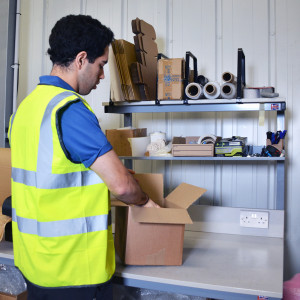Southgate Global Updates Eco Framework to Help Customers


Southgate Global : Sustainability has risen to the top of the agenda for countries, global leaders, and businesses alike in 2025. As the world looks ahead to the Conference of the Parties (COP 30) in November, there is set to be a broader focus on identifying sustainable practices. This includes offsetting carbon emissions, using renewable energy, and promoting a circular economy with a focus on recycling and reusing materials.
This growing emphasis on taking an eco-friendly approach is recognised by UK businesses and reflected in new industrial research commissioned recently by Southgate Global, a leader in equipment, consumables, and servicing in packing and fulfilment operations. According to its findings, companies across logistics, fulfilment, and packaging, rated themselves most confident in their environmental practices - ranking this higher than safety standards, cost control, operational efficiency and equipment reliability. As a direct response, Southgate has updated its Eco Product Framework, aimed at cutting waste and saving resources by taking achievable and immediate steps towards a greener future for its business and its customers.
Its new framework, the 5Rs, consists of: Reduce, Reuse, Recycle, Replace and Repair. Each existing and new Southgate listing will be reviewed against these, with these segments providing a structure to evaluate and envelope its product range, making sure that every offering is considered through a sustainability lens, and items that already deliver on that promise are highlighted:
- Reduce - focuses on products that decrease the production of waste or help to save raw materials or energy through smarter material choice or automated systems, such as Southgate's strapping and wrapping machines.
- Reuse - spotlights products that help customers cut down on consumables and extend asset life in fast-paced logistics environments, such as Southgate's shredders, which repurpose cardboard into void fill.
- Recycle - highlights products that are made from recycled content or are recyclable after use, thus supporting the circular economy. Southgate's edge boards are an example of a product that is made from materials that are fully recyclable after use.
- Replace - looks at items which can be upgraded to more eco-friendly and efficient options for customers, such as switching from virgin plastic air pillows to 30 per cent fully certified recycled-content ones.
These are 100 per cent recyclable, yet equally as effective in protecting products in transit, while also keeping costs down.
- Repair - focuses on extending the life of material handling equipment and machinery, from carts and trolleys through to strapping machines. Prioritising repair not only helps customers reduce downtime but also reduces consumption and raw material usage.
Through the new framework, Southgate can continue its drive towards meeting its high sustainability expectations without compromising product and operational performance. By updating this framework, Southgate continues to maintain its commitment to sustainable operations.
In 2023, with the help of One Carbon World, it achieved carbon neutrality for Scopes 1 and 2. This means it has implemented all the changes needed to deal with both direct emissions from its owned or controlled carbon sources as well as its indirect emissions arising from the purchase and use of the power the business needs. It has also achieved a Silver EcoVadis rating, showcasing its focus on driving sustainability both within its operation and the wider industry.
Alongside this, it has continued to stress the importance of taking achievable and realistic steps to help the industry meet circular economy targets and back up ambitious sustainable claims with meaningful, actionable and immediate solutions. Southgate's new Eco Product Framework is just one of the ways the organisation is taking small yet strategic steps towards making significant change. Gavin Gill, Head of Compliance at Southgate Global, said: "Our industrial research suggests that sustainability is a core operational priority for organisations. It is no longer viewed as just a compliance issue or tick box exercise, but a factor that is influencing every aspect of operations.
"For us, sustainability means designing, sourcing, and delivering packing and fulfilment solutions that meet today's operational needs while measurably reducing the environmental and social burden on tomorrow's world - wherever we can.
We think this is best achieved by looking for small immediate actionables that add up to making a big difference.
By reviewing our current inventory and practices with our new Eco Product Framework, we can continue to make rapid steps towards helping ourselves and our customers reduce their carbon footprint."
Transport & Logistics - Driving The Industry Forward